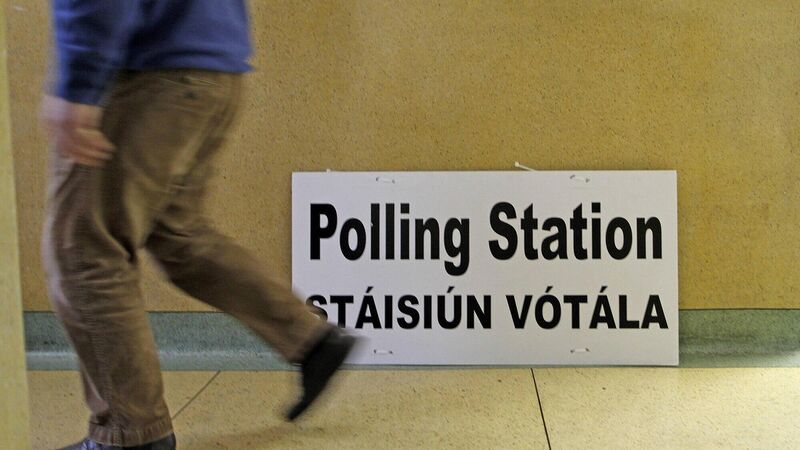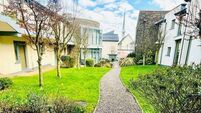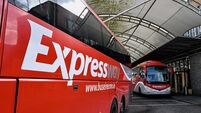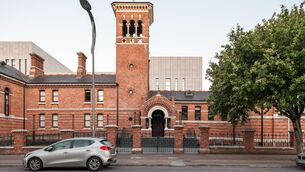Local elections 2024: Cork candidates utilising online advertising ahead of polling day

THE election campaign is fully underway, the posters are up and the canvassers are going door to door – but this year’s elections for seats in local councils and the European Parliament have seen the opening of another channel to allow election candidates get their message before the people, online advertising on social media.
THE election campaign is fully underway, the posters are up and the canvassers are going door to door – but this year’s elections for seats in local councils and the European Parliament have seen the opening of another channel to allow election candidates get their message before the people, online advertising on social media.
Local candidates have begun spending on online advertising in addition to door to door canvassing, according to an analysis carried out by a Cork-based communications expert specialising in online marketing and messaging.
This is paid for advertising and some candidates are spending considerable amounts on it while others are spending less but are getting their message across nonetheless.
There is a cohort of councillors and other representatives who already had a presence on platforms such as Facebook and they’re upping the frequency of their posts online considerably in the run-up to polling day with a view to getting their message to as many people as possible.
Targeted ads
Damien Mulley of Mulley Communications told The Echo that candidates in Cork city were already using online ads in a targeted way to get their message out and added that in the day of people living in multiplex apartment blocks, it could be more effective than door-to-door canvassing.
“I did a quick analysis of local election candidates and a lot of them aren’t doing advertising – some of them aren’t doing it very effectively, I saw one or two that were running their ads for local elections for the whole of Ireland – that’s just a waste of money,” said Mr Mulley.
“Some are doing it quite well, spending just small amounts, targeting Cork, pushing local election issues in front of people,” he said, pointing to campaigns by Deirdre Forde and Barry O’Brien in the Cork City South East Ward as examples of good practice.
“Barry O’Brien, he’s running for Fine Gael, and he’s now advertising on Instagram and Facebook and some of his ads, with a spend of less than €50, are getting out to thousands of people and he’s talking about local playgrounds, amenities, things like that, things that a local councillor would be asked to sort out.
“Deirdre Forde is in my area and she’s doing loads of ads – but a small spend, less than €250 so far this year, but doing the usual things that councillors do.”
He said while he recently answered a door to a candidate, many in his area wouldn’t because they live in multi-plex apartment blocks and the like and they may be out or at work.
“I don’t think people knocking on doors works any more, new housing and everything like that.”
Spending for European elections
In terms of the EU Parliament elections which take place on the same day as the local elections, spending is significantly ahead of the local elections as would be expected, with one candidate significantly ahead of competitors in Ireland South.
According to the report issued by Meta as part of new rules on transparency coming from the European Union, Cynthia Ní Mhurchú of Fianna Fáil has spent approximately €12,151 on 363 ads in the last 90 days up to Monday, May 20 and, in the same period, Grace O’Sullivan of the Green Party has spent approximately €1,661, Fine Gael’s Seán Kelly has spent €2,654 while Paul Gavan of Sinn Féin has spent €1,774.
Seán Kelly’s running mate, John Mullins of Cork, has spent €1,774 on five ads.
Most other candidates have spent zero on online advertising while Susan Doyle of the Social Democrats has spent €471, Niamh Hourigan of Labour has spent €1,801 and Cian Prendiville of People Before Profit-Solidarity spent €262.
Spending by parties
Even though a General Election might not be held until next March, spending by parties nationally is already ramping up.
According to the analysis provided by Mulley Communications, Sinn Féin has spent almost €55,114 on online advertising during the first quarter of 2024 and is spending more than double all the other parties combined on social media adverting.
In the same period Fine Gael spent €7,883 for 56 ads while Fianna Fáil spend was €11,329 for 333 ads – many of these were targeted on local areas.
When you look at the figures more closely, you can see that a sizable portion of Sinn Féin’s overall spend, €4,515 out of €55,114, was on advertising directed at Cork eyes.
One of the biggest individual spenders online on Facebook is Cynthia Ní Mhurchú who has spent more than her party, Fianna Fáil, on online advertising, €11,921 versus €11,329.
In contrast two Cork-based candidates, Billy Kelleher has spent €2,043 and John Mullins’ spent €1,774 on online Facebook ads in the same period.
Spending for local elections
In terms of the spend by candidates for the council elections in Cork, the spend is a great deal lower than that by the candidates for the European Parliament.
Shane O’Callaghan, who is a Fine Gael candidate for Cork City Council in the Cork South Central ward, according to this report, has spent €449 in the period while the Fianna Fáil councillor in Mallow, Gearóid Murphy, has a spend of €278.
Labour’s John Maher, in the Cork City North East ward, has spent €204 while Joe Lynch, the Sinn Féin candidate in Cork City South West has an expenditure of €151.
Peter Horgan, the Labour candidate campaigning in Cork City South East has spent €137. The Fianna Fáil councillor in Cork City South West, Tony Fitzgerald, has spent €124.
A number of candidates have expenditure of €100 or less – these include Eoghan Kenny of Labour in Mallow, Evie Nevin, another Labour candidate, in West Cork. Ciaran McCarthy of the Social Democrats in Cork City South West and Saoirse Mackin, also of the Soc Dems, in Cork City North West.
The results of the poll on June 7 will tell whether future elections will feature even more online advertising in local and national politics.







 App?
App?


